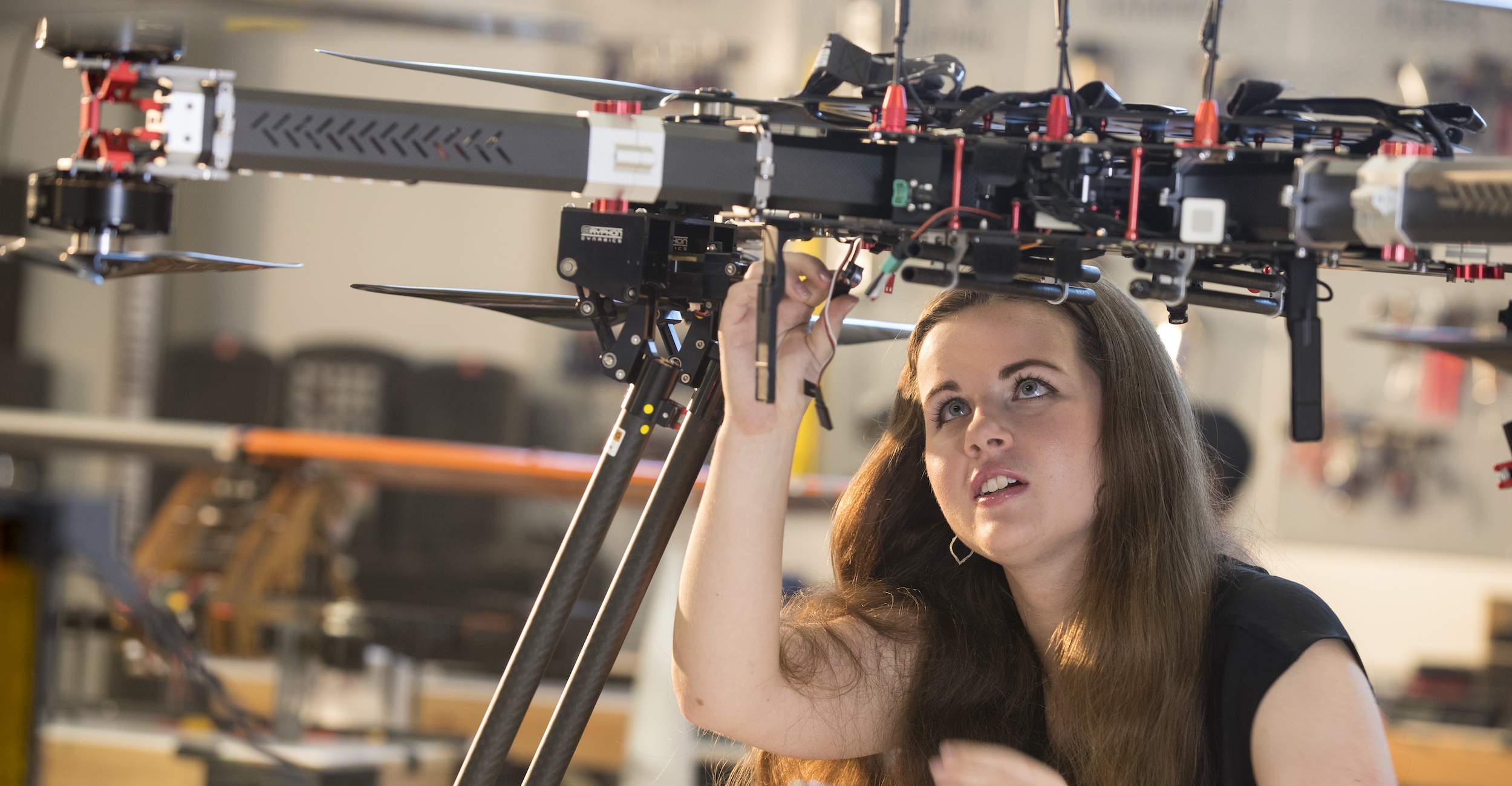
Oklahoma Aerospace Institute for Research and Education awarded major federal grant for work on Advanced Air Mobility
Friday, September 2, 2022
Media Contact: Mack Burke | Associate Director of Media Relations | 405.744.5540 | mack.burke_iv@okstate.edu
President Shrum praises transformative partnership as OSU continues to cement itself as Oklahoma’s aerospace leader
Oklahoma State University’s Oklahoma Aerospace Institute for Research and Education (OAIRE) has received two federal grants to expand its reach and impact in the development of Advanced Air Mobility (AAM).
The OSU grants are awarded by the U.S. Economic Development Administration as part of a $38.2 million award to the Tulsa Regional Advanced Mobility (TRAM) Corridor to create a hub for research, development and production in the burgeoning field of advanced mobility — the next intersection point between the aerospace industry and intelligence.
The funding will be used to create the LaunchPad Center of Advanced Air Mobility at the Helmerich Research Center on the OSU-Tulsa campus and support ongoing research activities at OSU, such as the NASA University Leadership Initiative led by OSU and the recent agreement between the state governments of Oklahoma and Arkansas to develop Advanced Mobility pilot programs across the border. The new center will focus on research and development of drone technology and urban air mobility — aka urban air taxis. The funding also will be used in the related development of flight test capabilities, and OSU researchers will work with the Osage Nation and its SkyWay36 Droneport northwest of downtown Tulsa.
“Quality partnerships open the door to new possibilities,” OSU President Kayse Shrum said. “Oklahoma State University has seen incredible success in other Tulsa-area partnerships, and we’re delighted to be a key stakeholder in this coalition. OSU is the state’s leader in aerospace and aviation, with specialized infrastructure dedicated to the research and design of unmanned systems.
“As a land-grant university, we’re committed to using research to address society’s most pressing problems, empowering Oklahoma’s workforce and providing access to a quality education. This partnership will improve life for Oklahomans in tangible ways. The benefits will expand beyond our borders and will have an influence on the nation and more importantly, the future.”
OSU will join a number of partners, including the Osage Nation, Tulsa Innovation Labs (TIL), Tulsa Ports, Osage LLC, Partner Tulsa and the Tulsa Regional Chamber, under the umbrella of The Indian Nations Council of Governments (INCOG) to create the technology corridor.
“This is a game changer for Oklahoma and OSU,” said Dr. Jamey Jacob, Unmanned Systems Research Institute director. “While Oklahoma is already a leader in Advanced Air Mobility, this grant will provide new capabilities, expanding OSU’s role in AAM and attracting new companies and projects to the state. This award, the first for OSU’s new Oklahoma Aerospace Institute for Research and Education, exemplifies and cements OSU’s leadership position in aerospace and aviation at the state and national levels.”
These grants are part of the federal Build Back Better - American Rescue Plan designed to boost economic recovery from the pandemic and rebuild American communities.
“Oklahoma has a proud and longstanding history in aviation, aerial mobility technology and manufacturing, which has allowed northeast Oklahoma to harness the region’s innovative capabilities and lead in the development of next-generation unmanned aerial systems,” said Congressman Frank Lucas (OK-03). “The Economic Development Administration’s $39 million award is a welcome and exciting investment that will cement Oklahoma as a hub of transformational aerial mobility research and development.
“I commend the work of INCOG, Oklahoma State University, the Osage Nation, the City of Tulsa and all other regional stakeholders who have forged a pioneering vision for the future of unmanned aerial technologies and manufacturing in Oklahoma. By investing in this critical industry — and our local and state economies — we will continue to increase America’s technological competitiveness across the globe.”
Jennifer Hankins, head of partnerships with Tulsa Innovation Labs, said the new agreement is “an important step towards realizing our vision and transforming Tulsa into an inclusive, thriving city of the future.”
